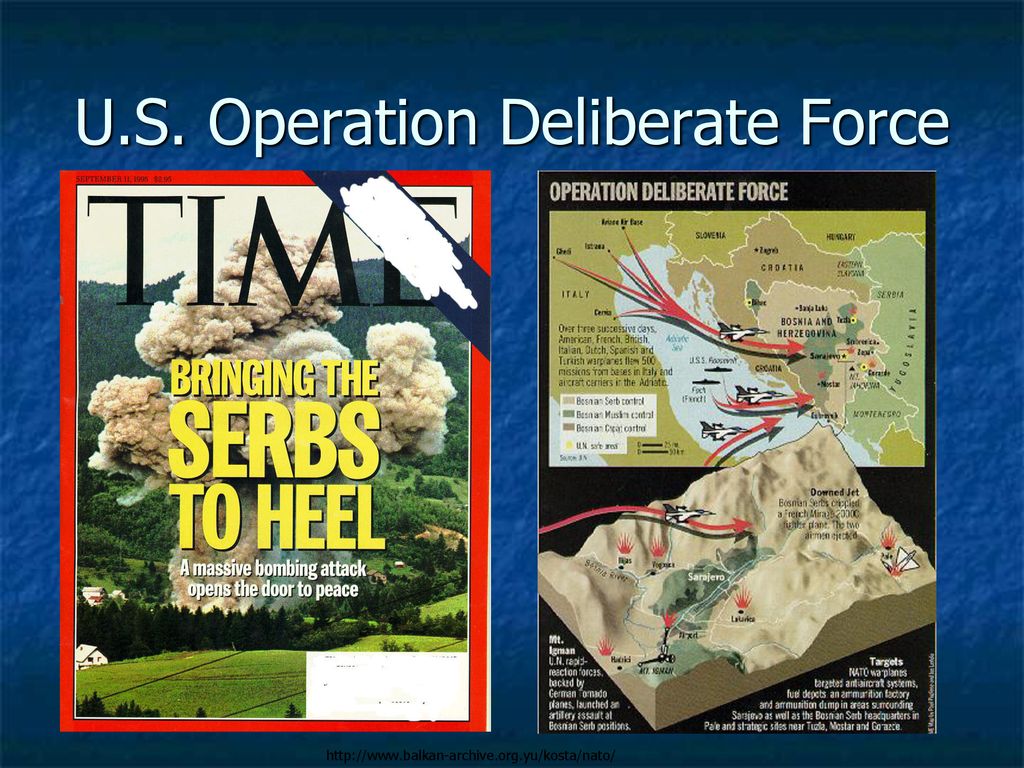https://www.yahoo.com/news/u-troops-needed-prevent-return-174935816.htmlU.S. troops needed to prevent return to war, Bosnia defense chief says
Sarajevo - Just three decades ago, the country today known as Bosnia and Herzegovina was the center of Europe's bloodiest conflict since World War II. The war that erupted between the country's Muslim Bosniaks, Orthodox Serbs and Catholic Croats left about 100,000 people dead and displaced millions more.
The landmark moment in the bloodshed was the massacre in Srebrenica in July 1995, when some 8,000 Muslim men and boys were murdered by Bosnian Serbs. NATO intervened, and finally, after more than three years of bloodshed, the United States was able to broker a ceasefire later that year.
...
Christian Schmidt is the high representative to Bosnia and Herzegovina, a job created as part of the peace accord. His mission is to oversee the implementation of the Dayton Accords that have kept the peace for 30 years, and he told CBS News that he sees a creeping dismantlement of the country from within.
...
Ohran told CBS News there's still a lot of hostility toward the Muslim community in Bosnia, and she believes Dodik is fueling it, very deliberately.
"In many interviews, Dodik degrades the Muslim community, denies that the Srebrenica genocide happened," she said. "In my opinion, he is voting for a cultural war here in Bosnia."
Abdi, who lives in the capital Sarajevo, echoed Ohran's concerns: "We can't afford the luxury to think we won't have another conflict. That's what we thought in 1992, and we were wrong."
The most immediate concern is the possibility that Dodik will withdraw Republika Srpska from the Bosnian armed forces, which could leave him with some revived iteration of an ethnic Serb army.
That is of particular concern to Sifet Podzic, Bosnia and Herzegovina's minister of defense.
"Unfortunately, the situation is very grave. Since the signing of the Dayton Peace Agreement, this is the most difficult year," he told CBS News. "We have a specific situation here: In case of an internal conflict, the armed forces of Bosnia and Herzegovina have no mission whatsoever to deal with an internal conflict."
As the country's own forces cannot be deployed to fight any part of the fragile alliance that splits off – and the Bosnia and Herzegovina military would cease to exist in its current form anyway, should Dodik make good on his threat – Podzic told CBS News that U.S. or NATO forces are needed in the country, once again, to keep the peace.
Majda Ruge, a senior policy fellow at the European Council on Foreign Relations thinktank, said Dodik's recent words and actions are part of a well-established pattern of provocation by the Serb leader.
"This is now an escalation of a process that has been ongoing since 2006, really since he assumed power in Republika Srpska," she told CBS News. "He has been repeatedly assaulting the authority of the state of Bosnia and Herzegovina and threatening the maximalist scenario of secession to negotiate kind of concessions and weaken the authority of the state."
...
With memories of the Bosnia War fading, it's far from clear that the U.S. and its European allies are willing to do what it takes to ensure that the state they fought to hold together in the 1990s remains intact.
Will the US learn how to be America again?
